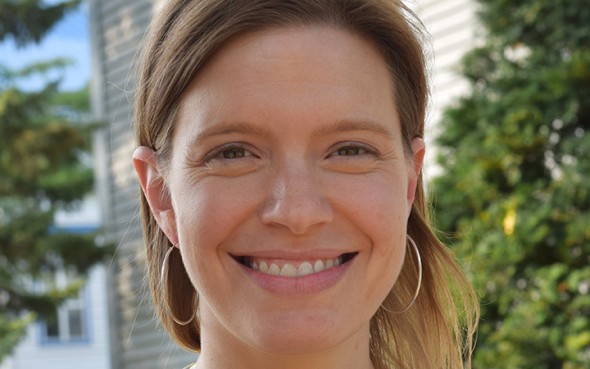Erika's story demonstrates her focus and persistence in finding an area of food that she's passionate about, and then waiting, enduring rejection, and waiting some more. A CSA (Community Supported Agriculture) may no longer be a new concept to many folks, but it is still a vital component of many small farms across the country - and we understand why Erika loves it!
For more on the FairShare CSA Coalition in Madison, Wisconsin, visit www.csacoalition.org.
When did you know that you wanted to work in food?
While working in the San Francisco Bay area, I had the opportunity to connect with a lot of folks working on urban agriculture and food access issues. I also became immersed in the local food movement through joining my first CSA, starting a small garden at my apartment complex, and eating from the local farmers markets. This experience got me hooked, and I realized that I wanted to study food and agriculture policy in order to have a greater impact on the affordability, accessibility, and equity of our food system. Ultimately, it wasn't one moment, but rather many small steps that all led me back to the table, where food and community connect!
How did you get your current good food job?
While in graduate school, I immediately connected with FairShare CSA Coalition by riding in Bike the Barns with some of my classmates. I had already joined a CSA that was part of the Coalition, and wanted to get connected immediately with work in the local food movement. During my 2 years in school, I volunteered and briefly interned with FairShare, and continued to be a member of my same CSA farm. Patience was critical and working/interning with other organizations that were connected with FairShare. At last the opportunity arose to apply for a position that was open, but I wasn't selected?but a few months later another chance came up! I started out part time and slowly added on time as the chance arose. Working in nonprofits is challenging due to limited financial capacity, so patience and passion are critical!
How did your previous work or life experience prepare you for a good food job?
I have always loved food and cooking. Being a long-time member of a CSA has also been important, along with previous work in the nonprofit sector. I think finding a position where your skills connect with the work the organization is doing and where you are part of a team where everyone brings a different skill-set is really critical. I have certain gifts and my colleagues have other gifts, and together we can accomplish great work!
What was the greatest obstacle you had to overcome in pursuing your Good Food Job dream?
Getting through grad school was challenging - it felt like a 2-year sprint. Having some close classmates who had similar passions and keeping my eye focused on the passion I have for good food and strong, sustainable farms was key. Also, connecting with others in the food movement around the region, country, and world, keeps things in perspective - we're not alone in this work.
Name one positive thing that a former employer taught you that you continue to appreciate?
There are so many things! I am constantly learning from my colleagues and board members. I think continuing to ask questions and, in particular, why are we doing something a certain way, has been an important factor. With limited human and financial resources, we have to be nimble and prioritize. We can't do it all, but we can do what's important and is going to have the greatest impact. Listening to others and being collaborative are also important skills.
What can you identify as the greatest opportunities in food right now?
I think the good food movement is starting to move into rural communities. This is something our farmers have seen, and this creates the opportunity to revitalize and proactively develop strong local food systems that benefit the rural landscape. I think there are a lot of opportunities to be strategic and thoughtful and to consider the impacts of our work for the long-term, and across the food system.
If you could be compensated for your work with something other than money, what would it be?
Fresh, local, organic produce all year round for life!! I love to cook and eat and preserve the harvest. It gets tough in March to make it through the Wisconsin winter, but our farms do amazing work extending the season, and I pack my pantry and freezer full!









